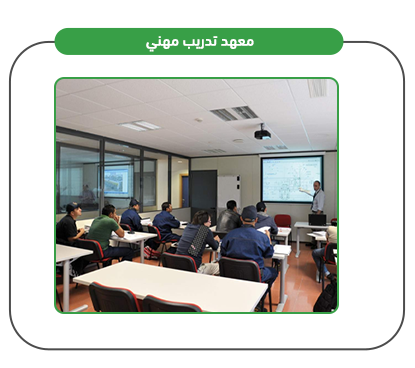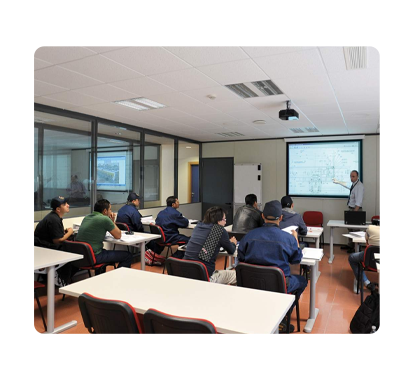mashroo3k Economic Consulting Company offers a feasibility study for a crafts training institute project with the highest return on investment and the best payback period. This study is based on a series of in-depth studies of the size of the Yemeni market, an analysis of the strategies of local and foreign competitors, and the provision of competitive pricing.

The Crafts Training Institute provides a space for individuals to learn, both theoretically and practically, the skills of craft trades such as plumbing, plastering, carpentry, and blacksmithing. The institute aims to raise the efficiency of workers in various craft trades using scientific methods and techniques, helping them provide craft services with greater precision and higher quality.
Mashroo3k provides Yemeni investors interested in investing in a Crafts Training Institute project with a set of specialized feasibility studies based on updated databases specific to the Yemeni market. This helps ensure the project’s success, achieving the highest return on investment and the best payback period. This is achieved through accurate studies of the size of the Yemeni market, encouraging the target group to benefit from the institute’s services, and providing training and networking opportunities with major institutions.



Supporting efforts in the field of economic development.
Combating unemployment and creating job opportunities for youth.
Learning about the craft and how to practice it to build a private business.
Training with a group of highly qualified and experienced trainers.
Providing individuals with the skills and experience to practice the profession.
Executive summary
Study project services/products
Market Size Analysis
Risk Assessment
Technical study
Financial study
Organizational and administrative study

Believing in the importance of the education sector and its role in localizing the national workforce, “Mashro3k” Consulting presents key indicators of the education sector in the GCC, encouraging investment in this vital field:
The total number of students in the early childhood development stage (nurseries and kindergartens) in the GCC reached 851.5 thousand, according to the latest statistics.
The number of students in school education stages in the GCC is approximately 9.3 million (79.4% in public schools and 20.6% in private schools).
Adult education centers have around 181,247 students enrolled.
Higher education institutions accommodate 2,206,446 students.
The number of early childhood education teachers is 50,647.
The number of school education teachers is 727,904.
There are 5,806 early childhood education institutions in operation.
The number of school education institutions is 32,310.
Over the past years, GCC governments have worked to bridge the gap between education and the job market by adopting curricula that focus on vocational and technical education and promoting modern learning technologies.
The GCC countries have also increased education spending and enhanced quality to ensure that graduates meet the private sector’s labor demands.
According to the latest statistics, the percentage of national budgets allocated to education in the GCC countries is as follows:
Saudi Arabia: 18.9%
United Arab Emirates: 14.8%
Oman: 12.2%
Bahrain: 9.8%
Kuwait: 12.3%
Qatar: 10.5%
By 2023, the private education market in the GCC is expected to reach $26.2 billion.
The global education services market was valued at $2,882.52 billion by the end of 2021.
Experts estimate that the market will reach $3,191.79 billion by the end of 2022, achieving a compound annual growth rate (CAGR) of 10.7%.
By 2026, the market is projected to grow to $4,623.90 billion, with a CAGR of 9.7% during the forecast period.

By 2030, the global value of education as an industry will reach US$10 trillion.
By 2024, the value of online education worldwide will reach US$247.46 billion.
The AI education market will expand at a compound annual growth rate of 36% from 2022 to 2030.
In 2000, the number of students worldwide was approximately 657 million, and this number increased to 739 million in 2019.
In 2000, the number of secondary school students was approximately 452 million, and this number increased to 601 million in 2019.